
- The Savvy Promise
At Savvy, our mission is to empower you to make informed financial choices. While we maintain stringent editorial standards, this article may include mentions of products offered by our partners. Here’s how we generate income.
In this article
Purchasing a luxury car goes beyond just getting around – it's about investing in top-notch craftsmanship, advanced technology and unmatched comfort, style and performance. Whether you're attracted to the prestige of a luxury vehicle or seeking an extraordinary driving experience, you can pick up expert tips to help you navigate the process of buying a luxury car confidently and easily in Savvy’s comprehensive guide. Learn more with us today!
What are the top luxury car models in Australia?
There’s a wide range of luxury cars available in Australia today in almost all vehicle segments. We’ve broken down the most popular luxury models for each type of car, according to the annual VFACTS statistics for 2023 released by the Federal Chamber of Automotive Industries (FCAI):
Micro cars
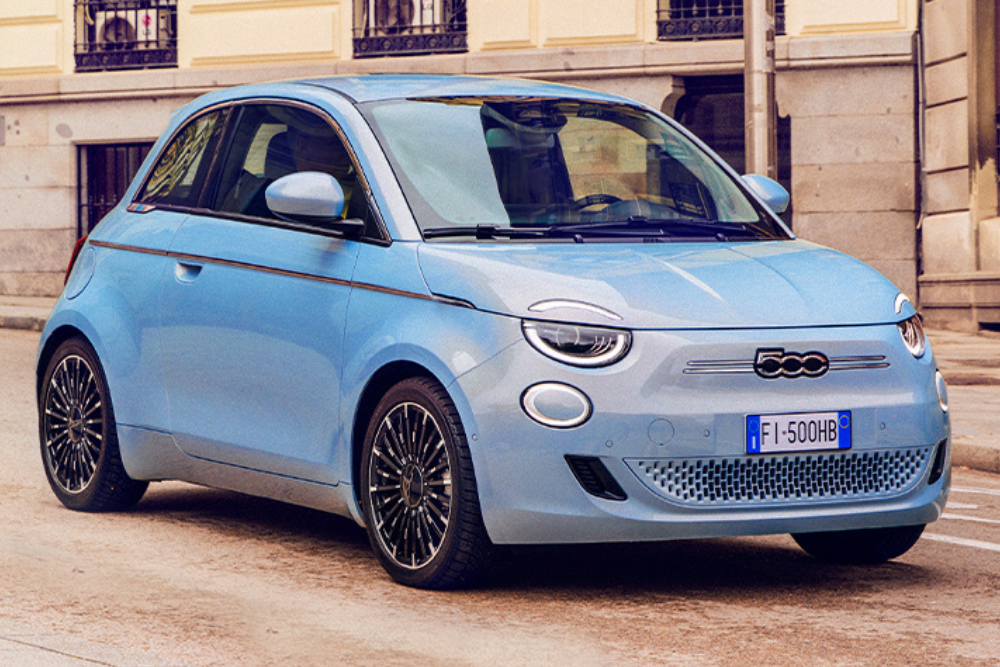
As the only luxury car in the segment, the Fiat 500 took the mantle of the top luxury micro vehicle with 755 units sold across the year. However, this only represented a market share of 8.9%, with the Kia Picanto doing most of the damage (7,706, 91.1% market share).
Small cars
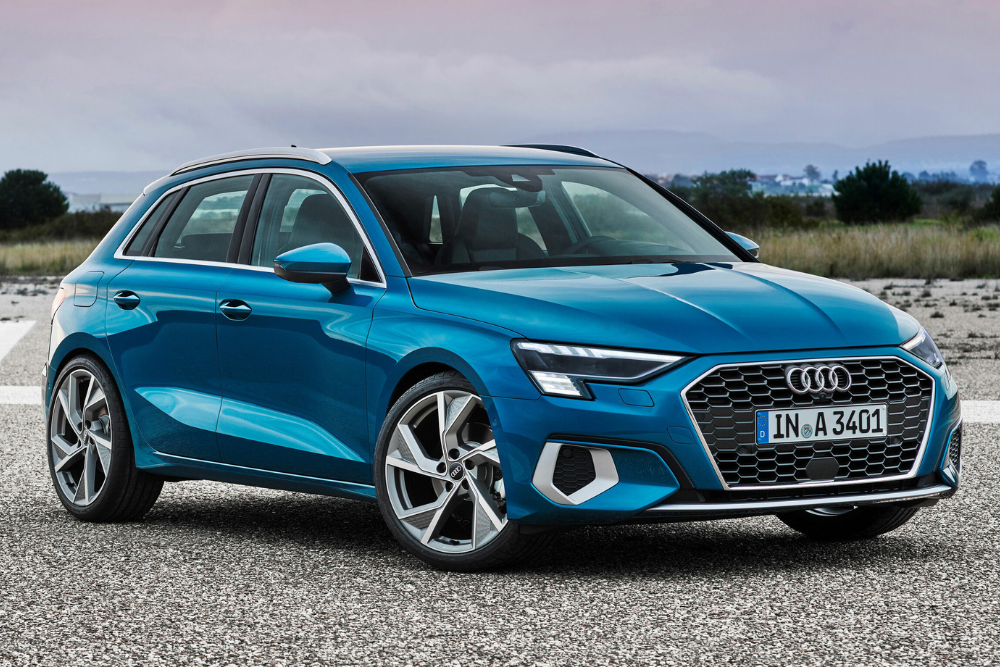
The Audi A3 was the second best-selling small car among models above $40,000, with its 3,319 units sold and 14.7% market share beaten only by the Volkswagen Golf in 2023 (3,592, 16.0%). The Mercedes-Benz A-Class was also popular, with 2,392 new cars sold (10.6%), while the BMW 1 Series (1,755, 7.8%) and 2 Series Gran Coupe (1,132, 5.0%) also passed 1,000 annual units.
Medium cars
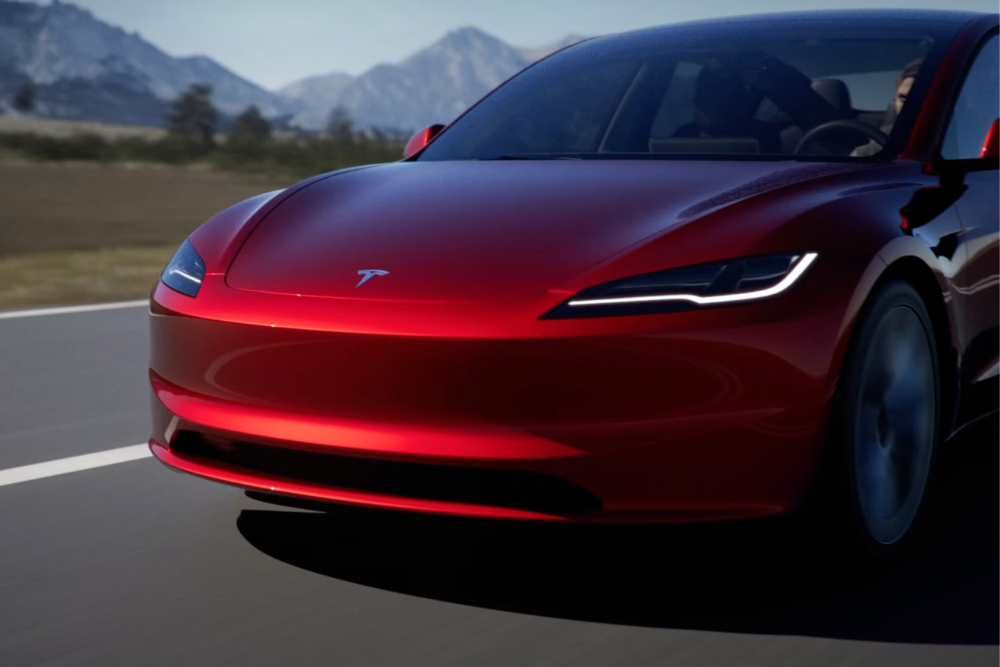
Among medium cars retailing above $60,000, EV manufacturer Tesla’s Model 3 was by far the most popular model in Australia, capturing over half the market (52.4%) with its 17,347 registrations. The BMW 3 Series was the only other model in this segment to pass 3,000 (3,147, 9.5%), though there were plenty of other notable names in the mix. The Mercedes-Benz C-Class (2,625, 7.9%), Polestar 2 (2,463, 7.4%) and Lexus ES (1,727, 5.2%) rounded out the top five.
Large cars
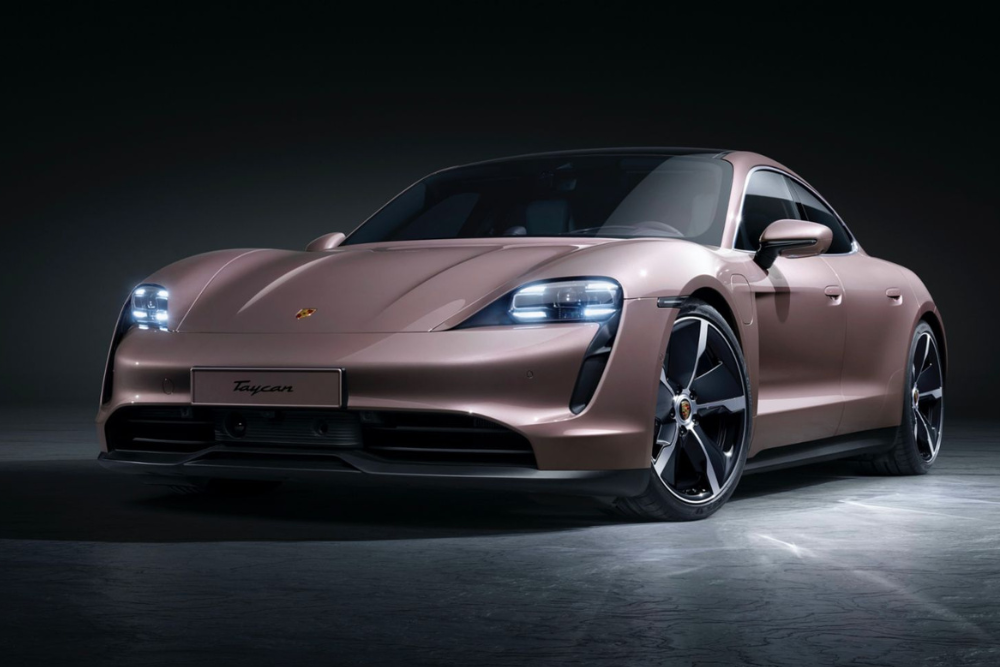
Although occupying a comparatively small segment compared to the previous two, the Porsche Taycan proved to be the top choice among luxury large cars above $70,000. It sold 535 vehicles to establish a market share of 20.1%, narrowly beating out the BMW 5 Series (507, 19.0%) and further ahead of the Mercedes-Benz EQE (437, 16.4%) and E-Class (421, 15.8%).
Upper large cars
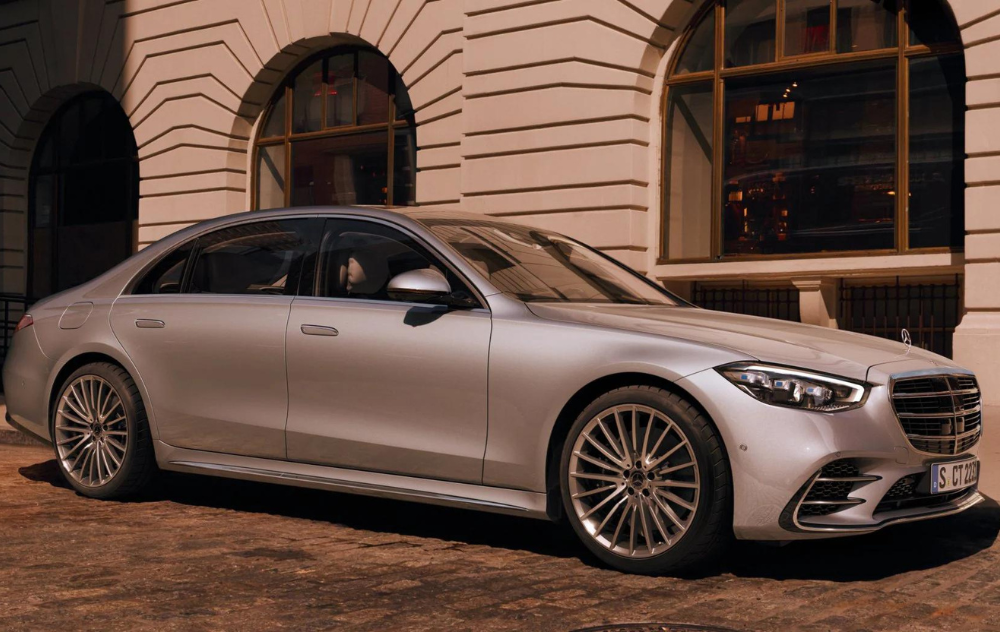
Another small segment, the best-selling upper large vehicle above $100,000 was the Mercedes-Benz S-Class at 108 registrations (20.3%). The BMW 7 Series (84, 15.8%) and Porsche Panamera (70, 13.2%) were also around the mark.
People movers
Mercedes-Benz also took out the people mover segment above $70,000, with its 377 V-Class units sold easing it to a 45.6% market share. It also had the Vito and eVito Tour combine for 127 units (15.4%), while the Lexus LM was further back (41, 5.0%).
Sports cars
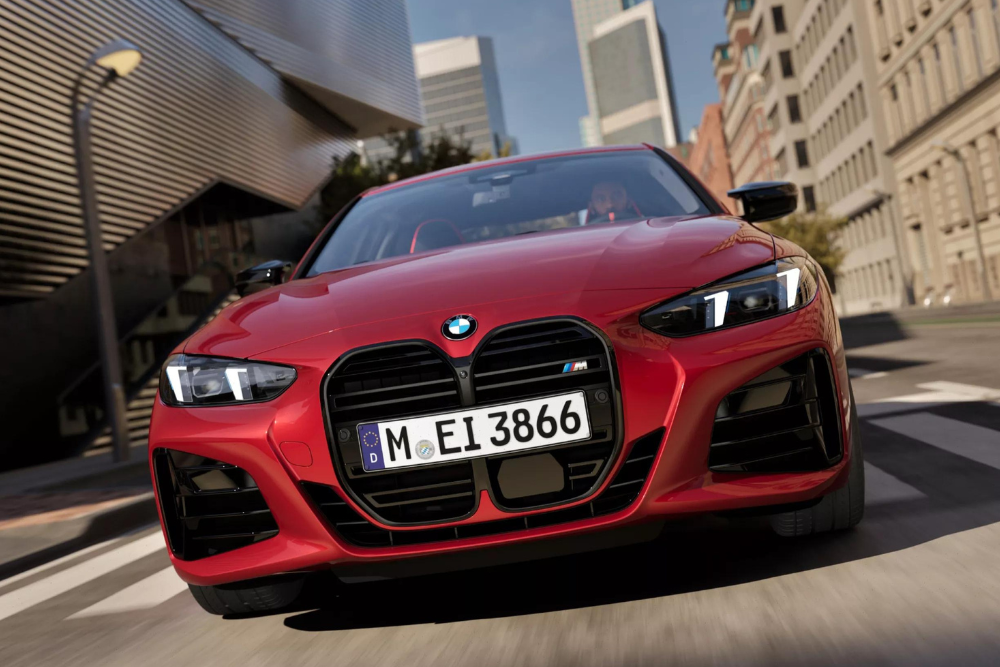
The Ford Mustang was the best-selling luxury sports car in Australia in 2023, recording 1,475 new unit sales to capture 21.5% of the sub-$80,000 sports car market. This placed it ahead of the BMW 2 Series Coupe and Convertible (1,164, 17.0%), which also came in at under $80,000.
Of the sports cars to fall between $80,000 and $200,000, BMW’s 4 Series Coupe/Convertible garnered 858 sales to establish a market share of just under a quarter (24.1%). The Mercedez-Benz C-Class Coupe/Convertible was also popular (808, 22.7%), while Chevrolet’s Corvette Stingray was a distant third (338, 9.5%).
Venturing into super-luxury territory, the Porsche 911 was comfortably the most popular sports car above $200,000, with 558 units sold and a market share of 41.4%. The Ferrari and Lamborghini Coupe/Convertibles were the only other cars with a market share above 10%, with the former at 215 (15.9%) and latter at 159 (11.8%).
How much can I expect to pay for a luxury car?
The cost of your luxury car will depend on several key variables, most notably the manufacturer and the size and strength of the car. For instance, it isn’t surprising that the Fiat 500, as the smallest luxury car available in Australia, is also the cheapest, retailing for just $27,220.
However, when you move up in sizes and power, you’ll also likely notice an increase in cost. For example, among medium cars, the Tesla Model 3 comes in at $61,900, while the BMW 3 Series steps it up by starting from $80,200. The Mercedes-Benz is similarly priced at $79,200.
Sports cars can often be the most expensive of the bunch, with the Ford Mustang being among the cheapest at a base price of $52,590 but reaching up to $104,990. On the other end, however, Ferraris retail from just over $400,000 to well above $800,000. Ultimately, it’s crucial to take the time to consider your budget and work out which luxury vehicle is right for you.
What is the Luxury Car Tax?
Luxury Car Tax (LCT) is a tax imposed on imported passenger cars (including demonstrators) with a GST-inclusive value exceeding specific thresholds. This tax is set at 33% above the following LCT thresholds:
- Fuel-efficient vehicles: these are cars with a claimed combined fuel consumption of less than 7L per 100 kilometres. The LCT threshold for fuel-efficient vehicles is $89,332 (including GST).
- Other vehicles: this category includes cars that don't meet the fuel-efficiency criteria or lack a claimed fuel consumption rating. The LCT threshold for these vehicles is $76,950 (including GST).
LCT is typically paid by businesses that sell or import luxury cars (dealers) However, individuals who import a luxury car themselves are also liable to pay LCT. When importing a luxury vehicle, it’s important to consider LCT and the amount it adds to the purchase and import cost of your car.
What to consider when buying a luxury car
A luxury car is, in many cases, a significant investment, so it’s important to consider all angles before you buy it. Keep the following tips in mind when you approach the purchase process:
Determine what you need from your car
Before diving into the luxury car buying process, it's essential to determine what you need from your vehicle. Consider factors such as seating capacity, storage space, technology features and driving performance. Additionally, you’ll need to think about what powers your car, such as whether you opt for a petrol, diesel, hybrid or electric model.
Are you looking for a sporty coupe for weekend drives, a spacious SUV for family adventures or a luxurious sedan for daily commuting? By identifying your specific requirements and preferences, you can narrow down your options and focus on finding a luxury car that meets your needs and enhances your driving experience.
Consider your budget
Luxury cars come with a wide range of price tags, so it's crucial to establish a budget before starting your search. Consider not just the upfront purchase price but also ongoing expenses such as insurance, maintenance and fuel costs. When it comes to insurance and maintenance, these are likely to be more expensive for luxury cars than other standard model.
Determine how much you can comfortably afford to spend on a luxury car without straining your finances. This may mean that you’re looking for the cheapest luxury cars on the market if you can’t quite afford the middle or upper-tier models.
Have an idea of how you’re buying the car
Decide whether you'll be buying the luxury car outright with cash, financing it with a car loan or obtaining a novated lease. Each option has its own advantages and considerations.
If you're paying cash, you'll avoid paying any interest or loan fees but the purchase may deplete your savings. Financing allows you to spread the cost over time, but you'll pay interest and fees throughout your term which could increase the cost by thousands of dollars.
Novated leasing offers tax benefits through a salary sacrifice arrangement, such as saving on GST and income tax, as well as having your running costs included in your lease agreement. However, this is limited to those who work for employers who are willing to offer such an agreement.
Keep an eye on resale value
New luxury cars, like all models, tend to depreciate quickly, so it's important to consider resale value when buying a luxury car. Research the depreciation rates and resale values of different luxury car models to get an idea of how well they hold their value over time.
Choosing a luxury car with strong resale value can help minimise the financial hit when it's time to sell or trade in the vehicle and potentially reduce your chances of negative equity. Features such as brand reputation, model popularity and vehicle condition can all influence resale value, so be sure to factor these considerations into your decision-making process.
Look for fuel efficiency
While luxury cars are often associated with high performance and opulent features, it's still important to consider fuel efficiency when making your purchase. Opting for a luxury car with good fuel efficiency, such as purchasing one with a green car loan, can save you money on fuel costs in the long run and reduce your environmental footprint.
Look for models with fuel-efficient engines, aerodynamic designs and hybrid or electric powertrains for the best fuel economy. Consider your driving habits and the typical petrol prices in your area when evaluating the fuel efficiency of different luxury car models.
Prioritise safety features
Safety should always be a top priority when buying any car and that’s no different for luxury vehicles. Look for those equipped with advanced safety features such as adaptive cruise control, automatic emergency braking, lane departure warning and blind-spot monitoring systems. These features can help prevent accidents and protect you and your passengers in the event of a collision.
Also, it’s crucial to check safety ratings and crash test results from ANCAP to ensure the car you're considering offers excellent safety performance. Investing in a luxury car with top-notch safety features can provide peace of mind and enhance your overall driving experience.
Should you buy new or used?
Deciding whether to buy a new or used luxury car depends on your budget, preferences and priorities. According to Bill Tsouvalas, Managing Director of Savvy, it’s essential to consider the pros and cons of each option before diving into your purchase.
“New cars can offer the latest features, technology and warranties, but they also come with higher price tags and more rapid depreciation”, he said.
“Used cars are more affordable and may offer better value for money, but you may have less peace of mind in potentially not knowing the full service history of the vehicle.
“You should always think carefully about whether you want to buy new or used before you start the financing process.”
Bill Tsouvalas, Managing Director - Savvy
Whether you decide to purchase a new or used luxury vehicle, you can compare a range of finance options with Savvy.
Did you find this page helpful?
Author
Thomas PerrottaReviewer
Bill TsouvalasPublished on June 11th, 2020
Last updated on June 20th, 2024
Fact checked
This guide provides general information and does not consider your individual needs, finances or objectives. We do not make any recommendation or suggestion about which product is best for you based on your specific situation and we do not compare all companies in the market, or all products offered by all companies. It’s always important to consider whether professional financial, legal or taxation advice is appropriate for you before choosing or purchasing a financial product.
The content on our website is produced by experts in the field of finance and reviewed as part of our editorial guidelines. We endeavour to keep all information across our site updated with accurate information.
Approval for car loans is always subject to our lender’s terms, conditions and qualification criteria. Lenders will undertake a credit check in line with responsible lending obligations to help determine whether you’re in a position to take on the loan you’re applying for.
The interest rate, comparison rate, fees and monthly repayments will depend on factors specific to your profile, such as your financial situation, as well others, such as the loan’s size and your chosen repayment term. Costs such as broker fees, redraw fees or early repayment fees, and cost savings such as fee waivers, aren’t included in the comparison rate but may influence the cost of the loan. Different terms, fees or other loan amounts may result in a different comparison rate.









